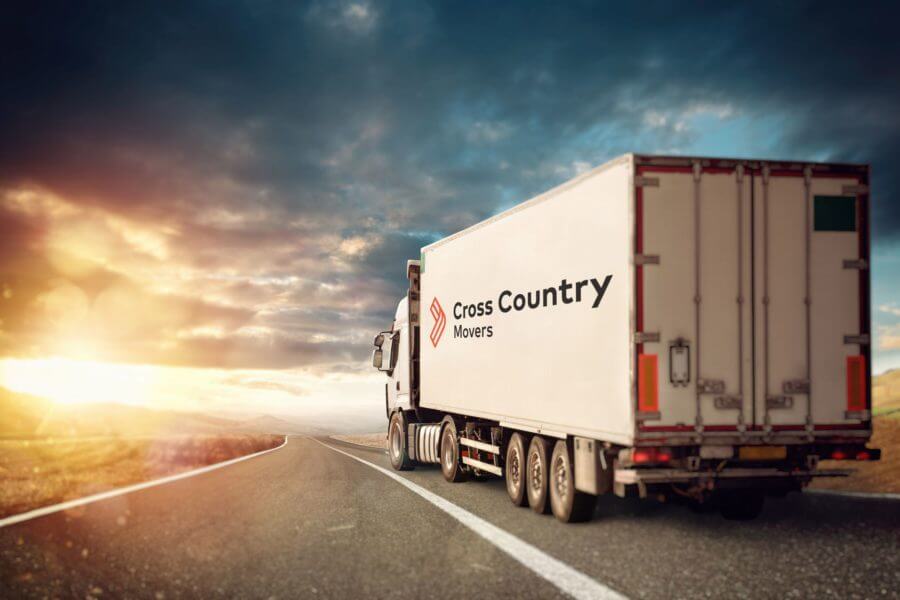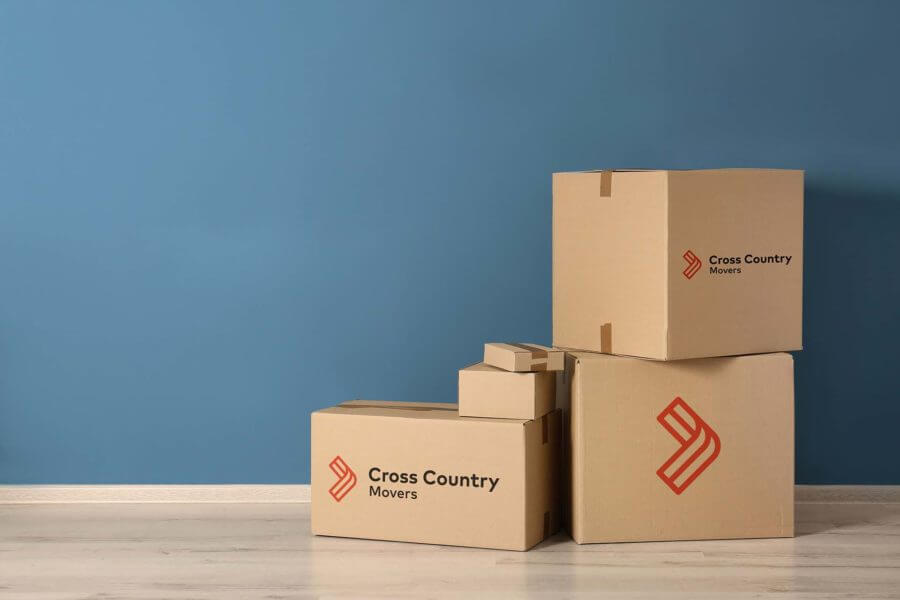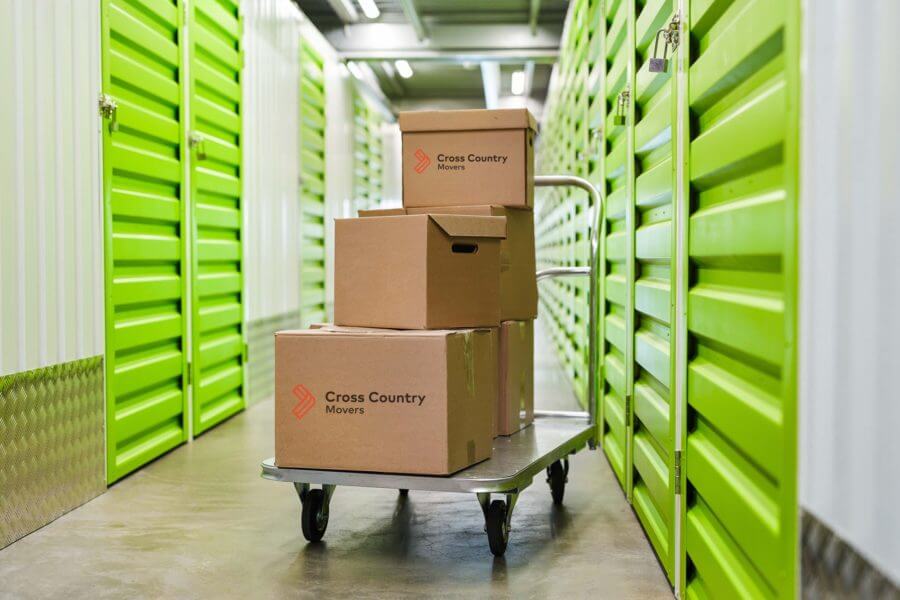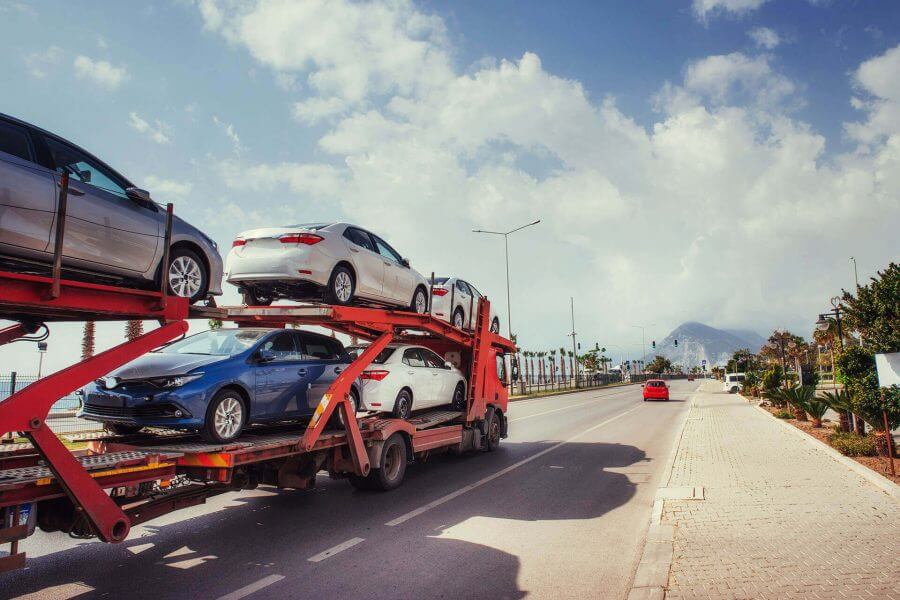

How to Create a Smart Moving Budget for Your Next Long-Distance Move
Posted in Moving Essentials on July 29, 2020
Before you even begin putting your belongings in boxes, one of the crucial things to do when it comes to long-distance relocations is to create an accurate moving budget. A clear account of how much money you have at your disposal and what you’ll be spending it on can do wonders for reducing stress levels and keeping your savings account unscathed. Since every little thing can help in that regard, stay with our short guide to figuring out your relocation expenses and creating an appropriate financial plan.

Costs of Hiring Professional Services You Have to Account For in Your Moving Budget
If you decide to book moving services and have professionals do most of the job, the main portion of the budget will be spent on the services of professional movers. They’ll charge you based on the weight or number of your belongings and the distance/duration of the move.
However, you may as well expect some additional expenses along the way, especially if you want to book professional packing services to prepare your stuff for transport. You might also want to tip movers after everything is done. Therefore, you should do thorough research and choose a company that is hidden-cost-free.
Spending Money on Insurance Is a Crucial Step
Whether you’re hiring movers or going for a DIY move, insurance is a box that has to be ticked off. You can pay the moving company for it (and you should), but buying an additional insurance policy can’t hurt at all.
Here are some things that can call for extra insurance:
- Cars, especially if you’re getting car shipping for a new, luxurious, or vintage vehicle
- Fragile items and electronics
- Family heirlooms with significant sentimental or financial value
Of course, the home you’re moving into should be insured as well.
Use Technology to Your Advantage
Math can sometimes be complicated, and it certainly is so when there are so many things to think about. So use the calculator app on your phone for such needs. It’ll be much easier and certainly clearer than calculating hundreds of figures written on pieces of paper.
You should also visit the website of your chosen mover, go through the reviews left by previous customers, and request a free estimate. In fact, it would be best if you asked for a quote from at least three companies to get the best deal (the best services at the most reasonable prices).

DIY Is Really Not a Budget-Friendly Relocation Option
Of course, you can decide to do the entire process by yourself (or with a couple of friends), without help from experts. It may seem cheaper, but the price expressed in time spent and stress sustained is exponential. And the money is not negligible, either.
For starters, you’ll have to rent a truck and adequate equipment for relocation, but you will also have to know how to pack a moving truck. And that’s just the beginning of the costs and expenses of a DIY relocation. A significant amount of cash can go on fuel, depending on the distance. Then there are accommodation and food along the way, which you will have to pay for regardless of whether you opt for a relocation company or a DIY move.
Calculate Food and Accommodation Into the Moving Budget
If the move lasts for more than a day, you’ll have to sleep somewhere and eat something. Besides, you’ll need to arrange and pay for your own transport, be it a plane ticket or a cross-country drive. So add a few more items to your spreadsheet. And remember: the sooner you start looking for accommodation, the better the price will be.

Consider Costs of Packing Up Your Home
There are economical packing solutions. If you opt for professional packing services, the cost of it will be incorporated into the overall cost of movers’ services. It’s possible that movers will require a household inventory list so they know what to pack. In this case, they will bring all the basic packing supplies with them.
Know Your Materials and Where to Find Them
On the other hand, if you choose to wrap up your belongings by yourself, you should learn what kind of materials are used for packing. Boxes, first and foremost, can be bought in retail stores or directly from professional movers. You may even get them for free or find cheaper alternatives, but have some cash prepared, just in case. The same goes for the bubble wrap, packing paper, tape, and other materials that’ll carry and protect your stuff.
Of course, hiring professionals will save you a lot of time and nerves, and when it comes to packaging fragile items, it’s undoubtedly best to leave it to the pros.

When Budgeting for a Move Make Room for Storage
During the process of relocating, it’s not uncommon to face situations where not all your belongings can be moved into your new home right away. This could be due to various reasons – maybe your new place isn’t ready, or perhaps you’re downsizing and haven’t decided what to keep. In such scenarios, storage services become a vital part of your moving plan.
Many moving companies recognize this need and provide storage solutions as part of their service offerings. The convenience of having your movers also handle your storage needs cannot be overstated. It simplifies logistics, as you won’t need to coordinate with multiple companies.
When selecting a moving company, it’s important to inquire about their storage facilities. Are they secure, climate-controlled, and easily accessible? How long is the free storage period, and what are the rates once that period expires? These are critical questions to ask to ensure that your belongings are stored safely and affordably.
Incorporating storage solutions into your moving plan is not just about convenience. It’s about making a smart, cost-effective choice for a seamless transition to your new home. By choosing a mover that offers complimentary storage services, you’re not only ensuring the safety and security of your belongings but also potentially saving money in the process.

Put Car Shipping on the Moving Expense Checklist
Wherever you go, you’d want your car to go with you, right? So, you’ll need to transport your vehicle with the help of professional auto transport services or on your own. If the former is the case, make inquiries at several companies about it, and then decide on one.
The price of car shipping depends on distance, but also on the mode of transport. Also, before you load your car on a trailer, you’ll have to do a technical inspection and necessary repairs.
Financial Planning for Moving Includes Choosing Open or Enclosed Transport
Two main modes of transporting cars are open and enclosed trailers. Open ones are cheaper, but the car is more at risk during the trip. Enclosed transport offers almost full safety but for much more money. Also, if you opt for the car to be delivered to your doorstep, the price will be steeper than if you pick it up at a terminal.

Once You Get There, Implement Different Cost-Saving Moving Strategies
Getting to the destination doesn’t mean the end of expenses. You’ll probably have to splash some cash for setting up the utilities. Maybe some of your furniture or appliances couldn’t arrive with you, and you have to add them to the new apartment checklist.
Only when all of that, along with other things to do after moving, is covered, you can consider your relocation truly over from a financial standpoint.
Go Over Costs Related to Real Estate
This one is often overlooked due to all the tasks that fill up your schedule, but the home you’re leaving will need some spending, too. If you’re leaving your own home, there will be fees related to the legal representation, advertising, and selling, or cleaning and repairs if you’re renting it. If you were a tenant, the landlord may be entitled to some fees because of canceling the lease. Either way, calculate preparing your home for sale into the final budget, as well as any move-out cleaning expenses.

The Best Way to Spend Is To Save Time and Effort
Stress-free relocation is rare, no matter how well you plan the move to another city. Still, stress is a factor that can be mitigated to a significant degree. All it takes is a bit of planning and financial prudence, and we hope we’ve helped you out at least a bit in that respect.
Also, if you really want to have a smooth move, give Cross Country Movers a call. Book your move, and the rest will be up to us.




